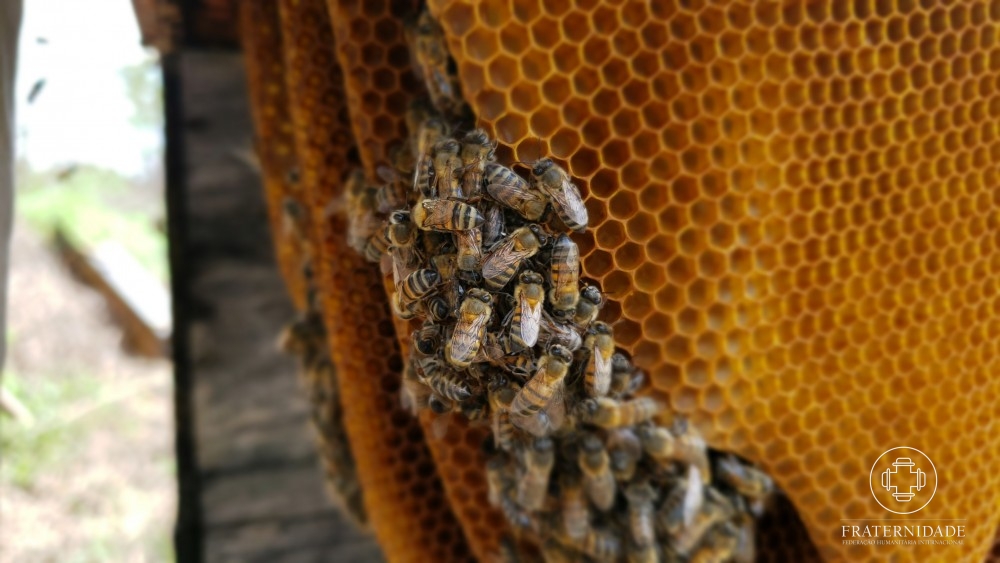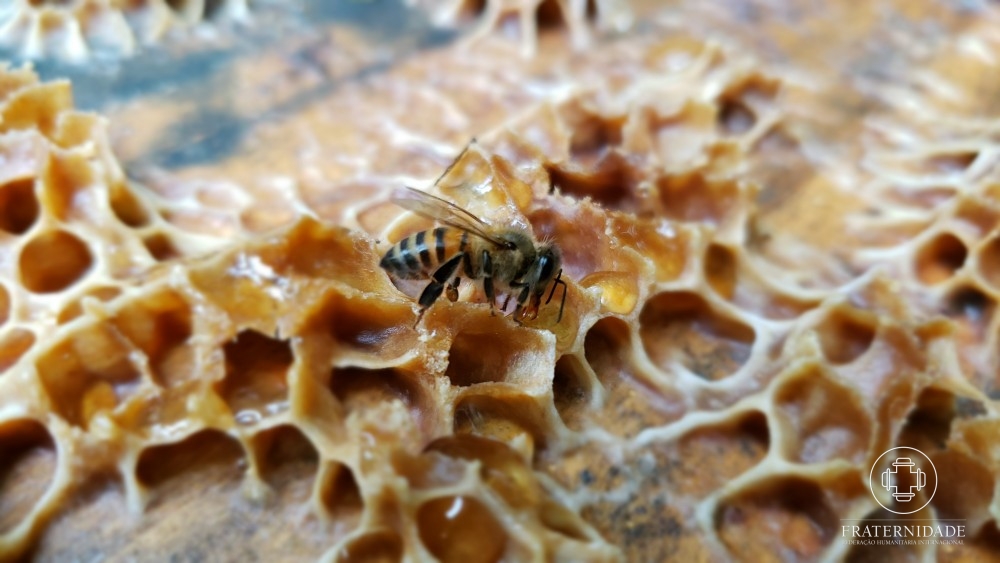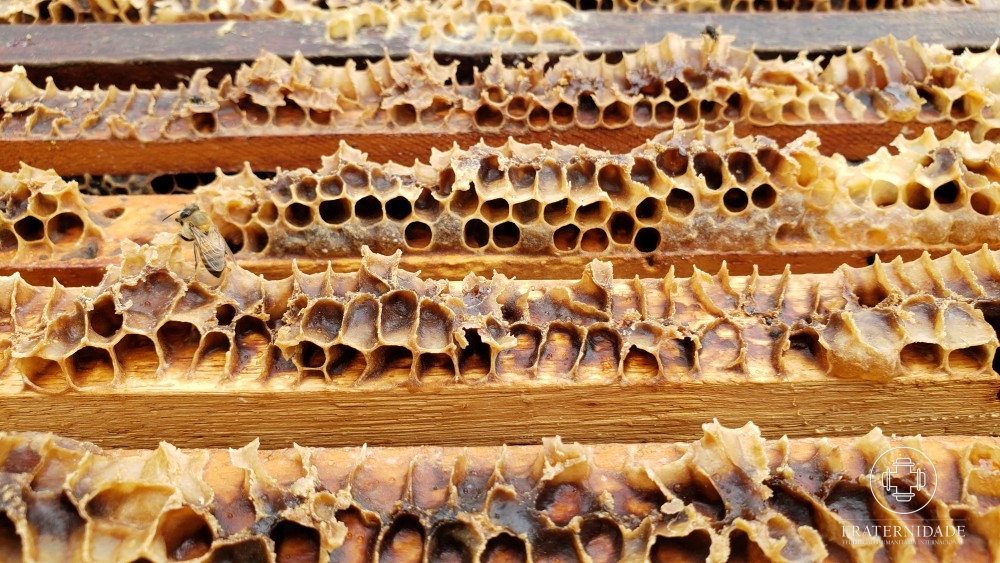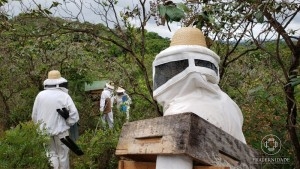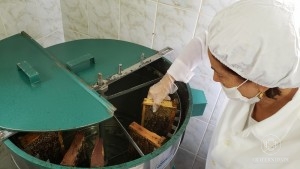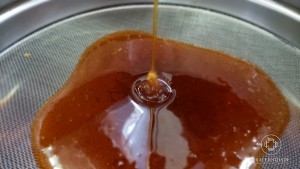On the occasion of the course on Syntropic Agriculture done in July of 2019 in F2, a module of agroforestry was put in place in one of the areas of the Light-Community of Figueira, with a priority placed on melliferous plants, which are what attract and feed bees.
We know that in Brazil there are approximately 5,000 species of bees, among which we have approximately 330 species without stingers, and of these, close to 70 can and should be bred, with the advantage of making it possible for the human being to have a direct contact with them, without the need of using special clothing or equipment.
Taking this into consideration, at this moment, a Meliponiculture project is being implemented, which is the development of a space for giving a home to some of these species of stingless bees, called Meliponaries. They contribute great environmental benefits, since they are species that pollinate the native flora, the crops and orchards, which besides contributing to the production of food, also guarantees the maintenance of plant biodiversity.
The risk of Extinction
It has been evident that in the whole world there is an increasingly frequent occurrence of the massive death and disappearance of bees, and although their importance as producers of honey, and providers of pollen, propolis, royal jelly, and wax is undeniable, their greatest contribution is in the service they render all living beings on the planet, which is pollination.
Through this sublime process of transportation, which they perform so naturally and masterfully, they become essential in maintaining the balance of a large part of ecosystems.
Pollination is a mechanism used by nature for bringing continuity to life. The disappearance of the bees puts at risk the existence of not only human beings, but all living beings.
Beyond all the mistaken human interventions, such as the destruction of nature, the burnings, the cutting down of the forests, the honey industry, which exploits the honey without knowledge of the proper management, there is also the constant and indiscriminate use of pesticides in agriculture, which has shown itself to be the principal factor responsible for the death of bees.
It is thus evident that there is an urgent need to create favorable environments for the life of these beings, environments that protect them.
Just like any living being, which needs food and shelter to survive, bees also need this, and it is with this awareness that the Light-Community of Figueira is working to create an adequate environment for them, building spaces for shelter, where these beings, that foster the life on Earth, can live in harmony with all the Kingdoms of Nature.
Proceeding with this, the collaborators of the Light-Community of Figueira follow the teachings transmitted by José Trigueirinho Netto, in one of his studies entitled Conversations with Trigueirinho Nº1, available from Irdin Editora.
“…here (in Figueira) we plant various species of plants for the bees, so that they may have an easier time… The intention is to help them, not for exploitation, but rather so that they can coexist with us in an environment that supports them.”

